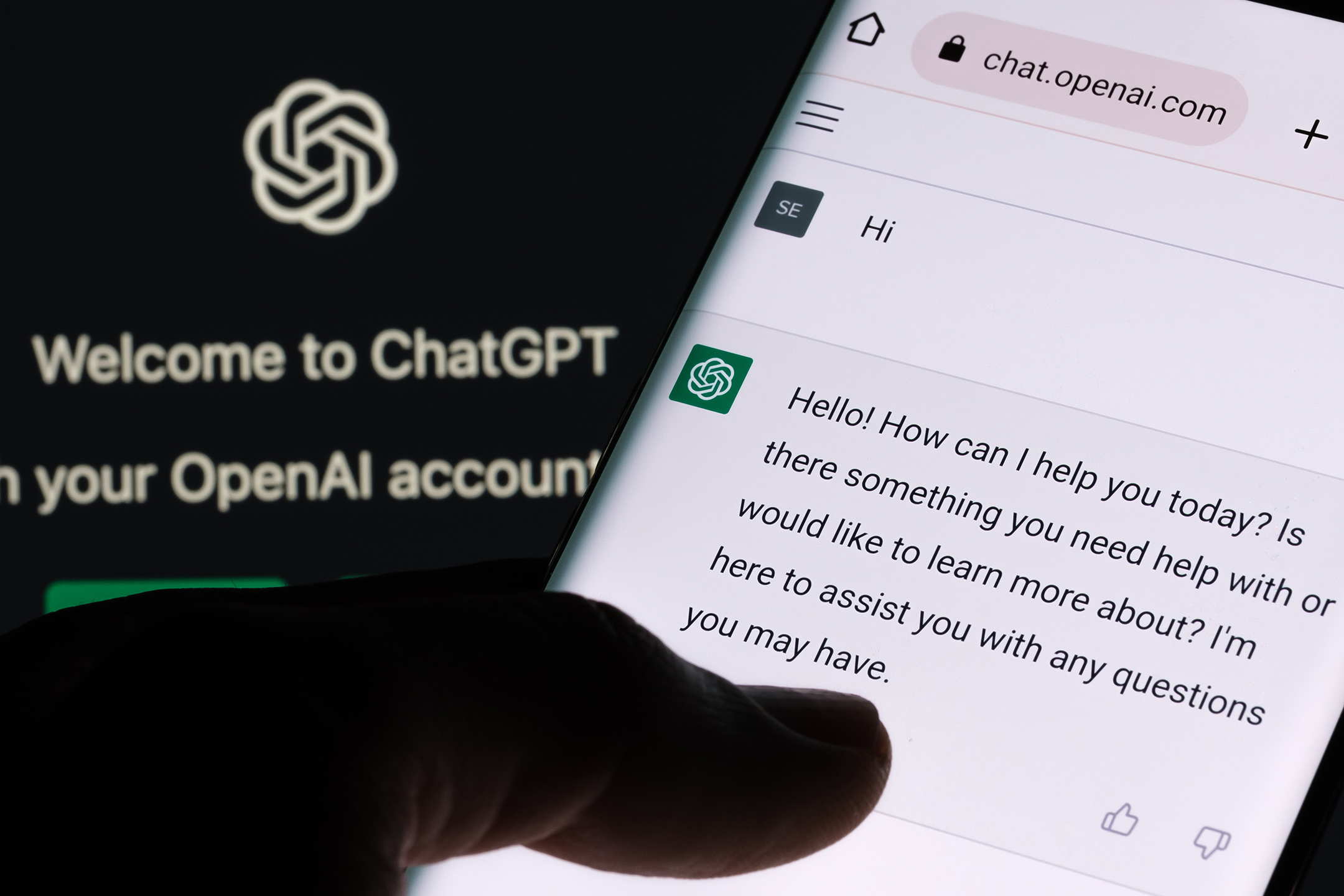An Inevitable Discovery
If you’re a Michigan homeowner with a basement, you probably know that when it comes to moisture issues, it’s not a matter of “if” - but “when”. While I was out of town during Memorial Day weekend, the inevitable happened, which set off a chain reaction of calling the insurance company, contractors, and moving a metric ton of Christmas decor and kids' toys being stored in the basement.
Normally, I use Google as the first step in these situations. However, this time around, I used ChatGPT.
“My basement just flooded. Who are the best plumbers to call in Sterling Heights, Michigan?”
ChatGPT responded with a list of remediation options first, then provided a list of plumbing companies to call. Who was first on the list? None other than our client, WaterWork Plumbing.
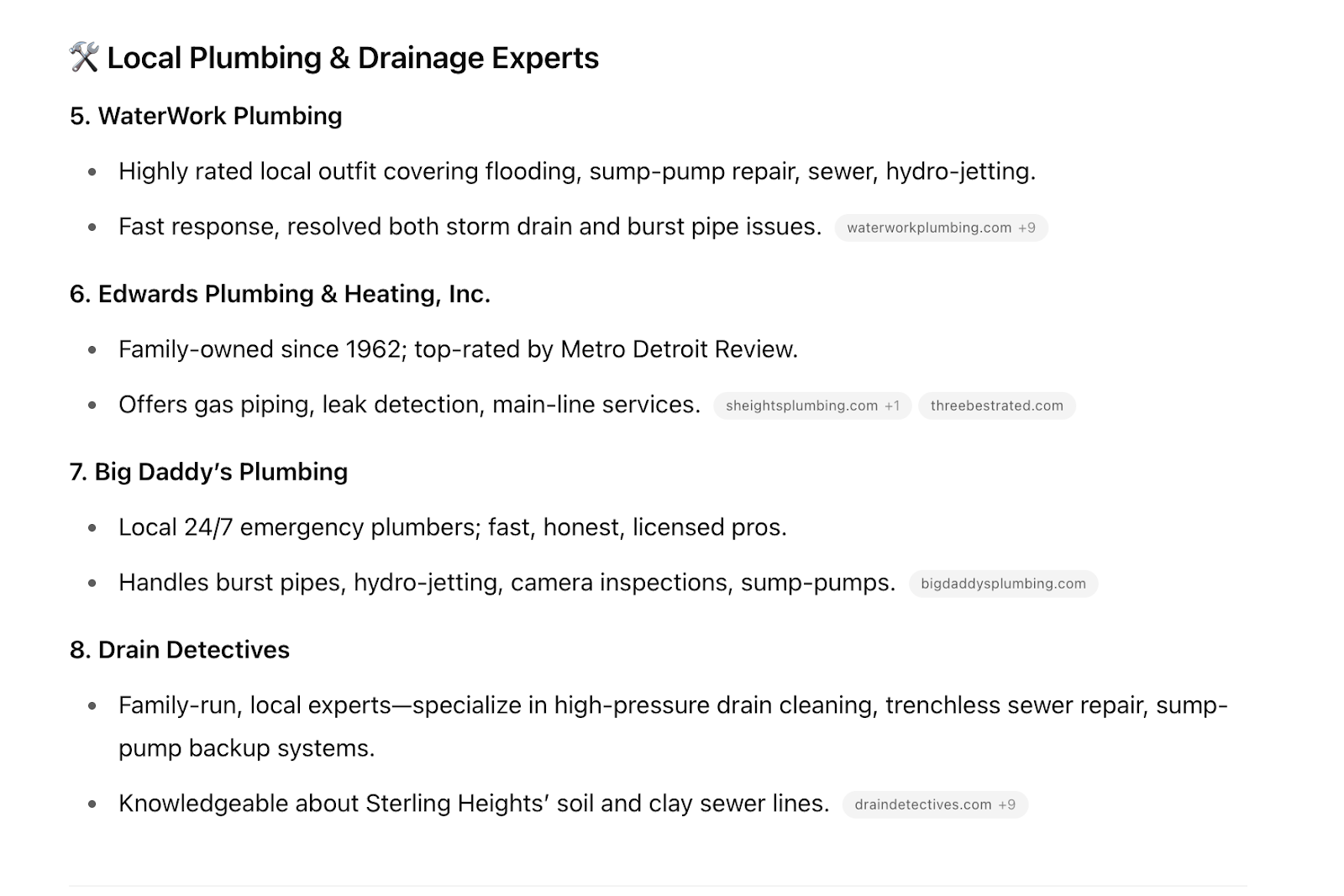
A Twofer?
Our SEO mantra at Verde Media is centered around building authority and trust. Reviews, high-quality content, and high-quality links from trustworthy sources have always been the bread and butter of any successful local SEO campaign.
After seeing WaterWork rank at the top of the ChatGPT results for plumbers in Sterling Heights (when their office is located in Ferndale, MI - 15 miles away), our search team did a dive into the signals overlap between what AI and search engines have in common when it comes to recommending businesses.
Here’s what our research came up with:
1. When people are looking for the “best” - reviews matter.
WaterWork Plumbing is one of the top-rated plumbing companies in the metro Detroit area with over 5,000 reviews across Google, Facebook, Angi, Yelp, and the other major directories. This made sense to us as to why WaterWork’s presence would be recommended in a city that is over 10 miles away.
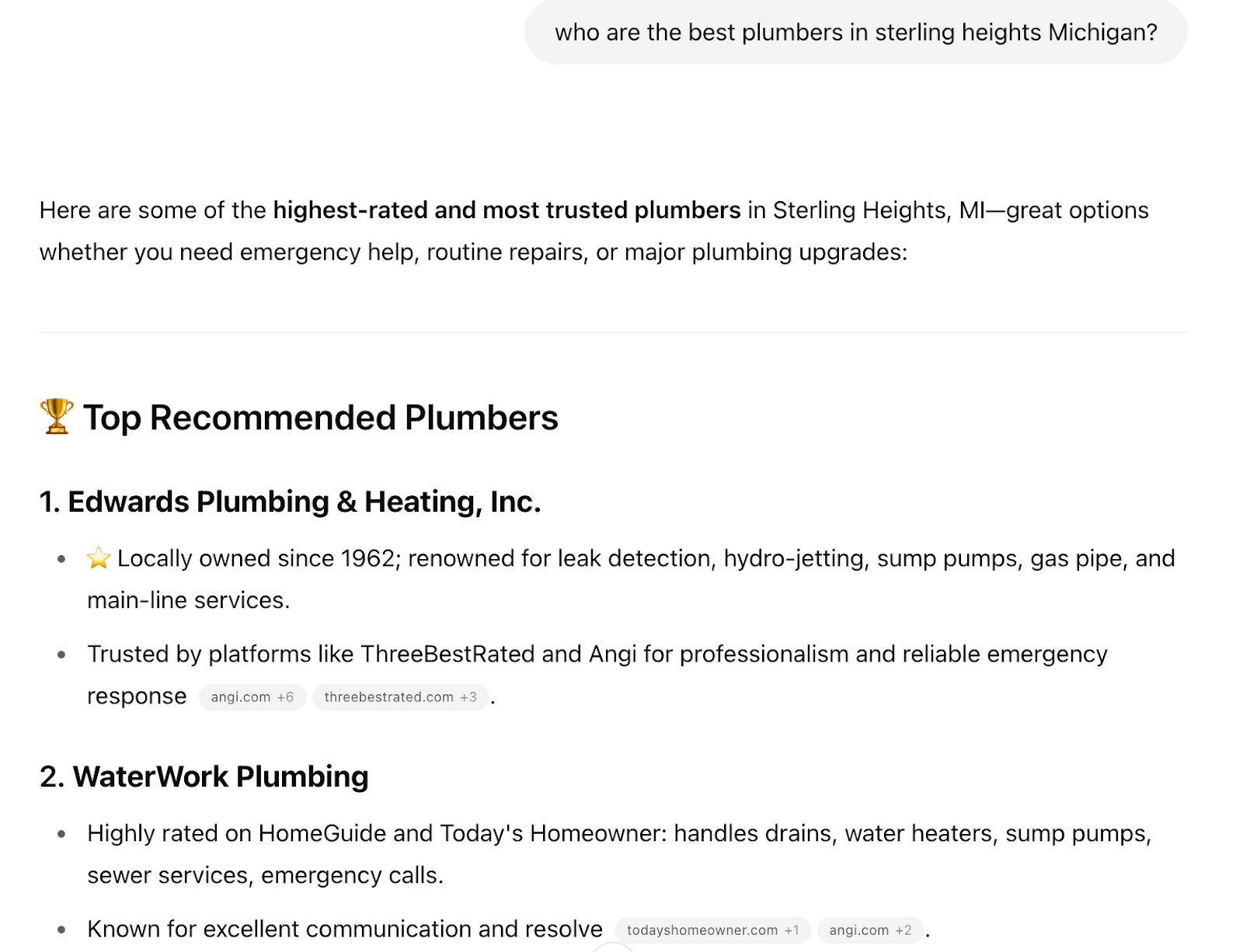
2. Having localized content is important
If you conduct an organic search in Google for “Sterling Heights plumbers”, WaterWork also shows up as one of the top results. The page that ranks for this keyword is a geotargeted landing page. Here’s a direct link to it: https://waterworkplumbing.com/sterling-heights-mi/
We double-checked the sources for where ChatGPT was pulling its recommendations for plumbers in Sterling Heights, and one of the sources was the geotargeted landing page we built!
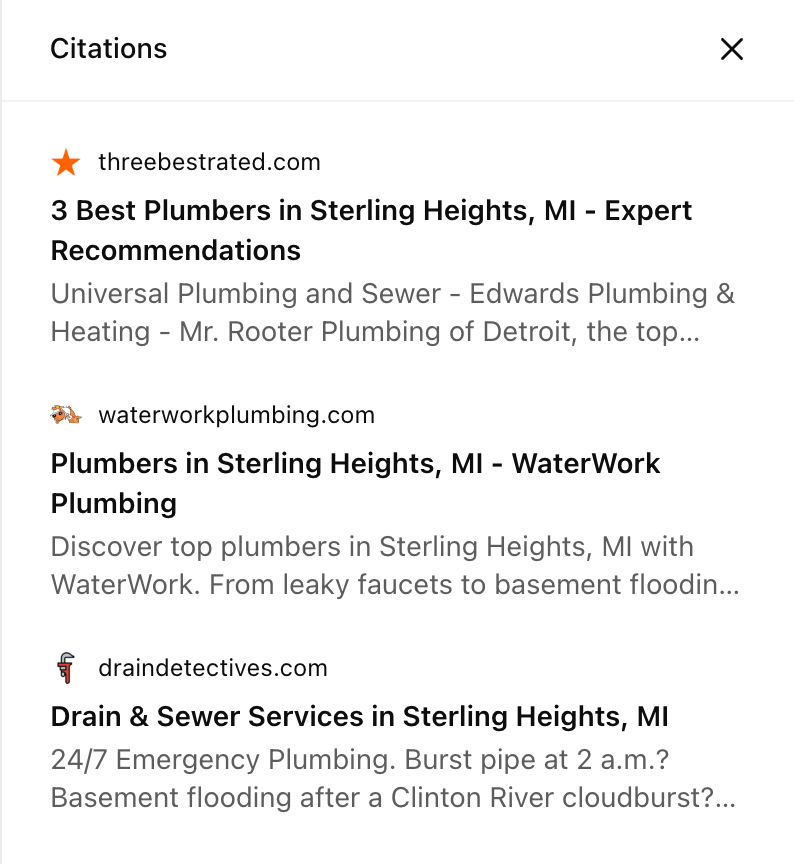
3. Authoritative citations matter - similar to Local SEO
When we examined the sources from which ChatGPT was pulling its data to formulate its recommendations, we noticed its top sources were sites like:
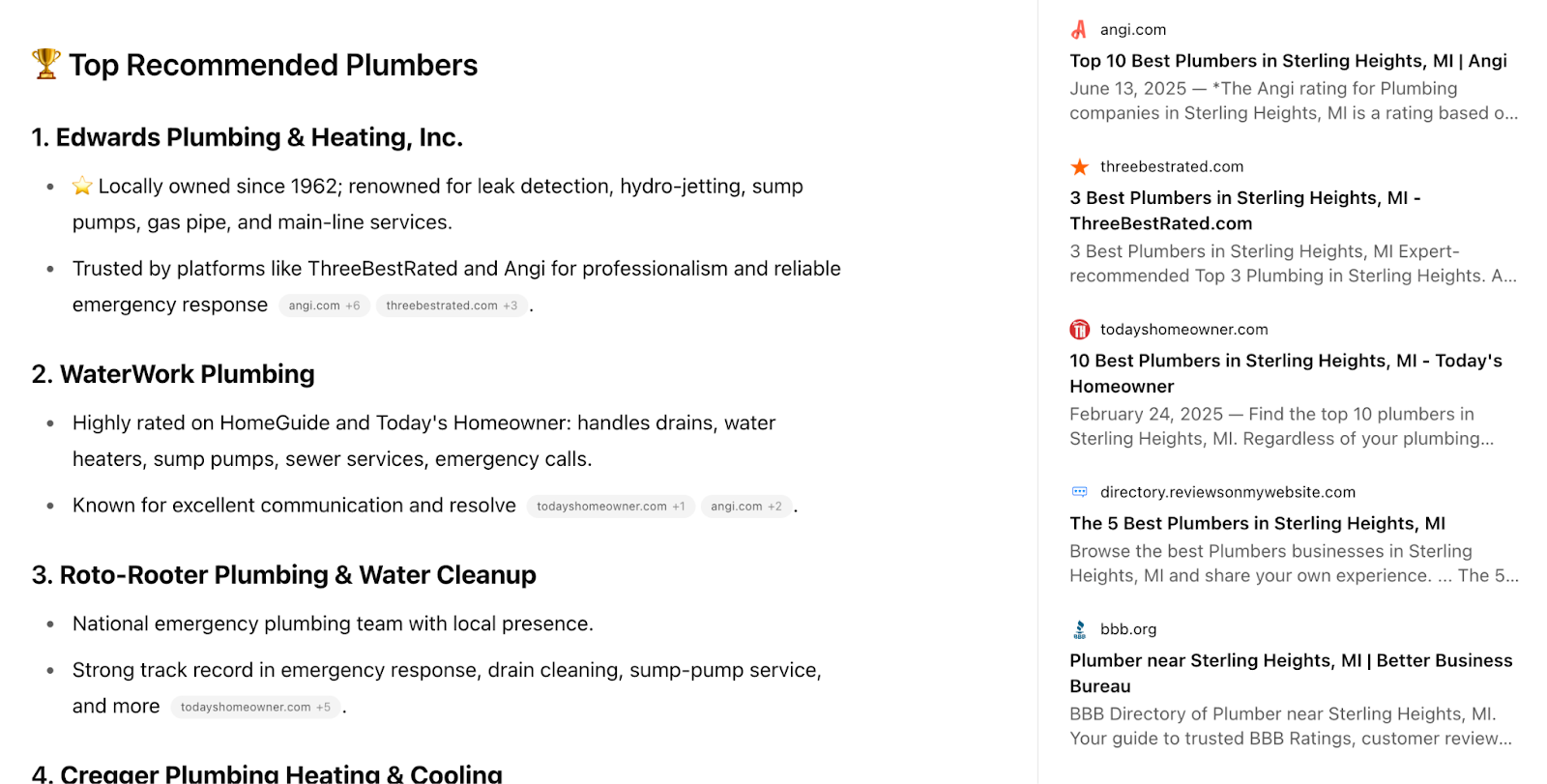
The majority of the sites that ChatGPT was using to provide recommendations were citation/directory sites. As an SEO agency, citation building and optimization are a core part of our strategy, especially for local search. With over 7 years of manual citation building, we were pleased to see that our efforts “carried over” into optimizing our client for AI searches.
4. Reviews are important, but reputation is key
While having a wide base of citations across authoritative sites played a role in WaterWork’s presence in the AI results, we found that the catalyst of influence was their reputation in each directory.
WaterWork’s reputation wasn’t just limited to Google or Facebook. We executed review campaigns for all the major sites, including the more niche domains like BBB, Angi, and HomeAdvisor. We noticed a strong correlation between businesses that were Google review dominant versus having their reputation spread out across the web. Those with a more diversified review profile performed better in the LLM results. This means that citation building on its own isn’t enough - pushing for reviews across the entire web is key.

So, what’s different about AIO versus traditional SEO?
Optimizing your business for AI isn’t about rankings specifically for keywords. It’s about focusing on trust signals. As a local business, you should be focusing on the following:
- Building citations on trustworthy sites
- Finding citation opportunities on industry-specific and geo-specific sites (like your local Chamber of Commerce, for example)
- Drive reviews to all citation profiles, not just to Google
- Build your website to include structured data and schema with localized content and review markups
AI doesn’t crawl like Google; it synthesizes from pre-indexed, trustworthy databases. So the play isn’t just ranking higher, it’s showing up where the model looks for citations.


